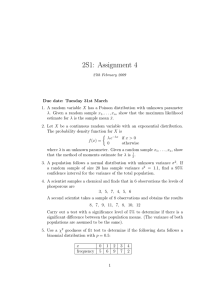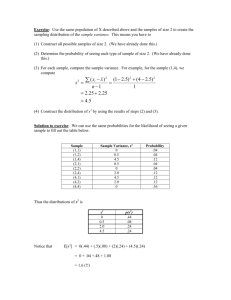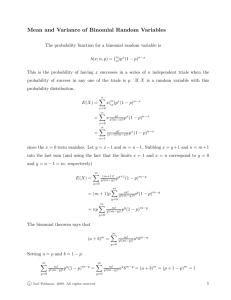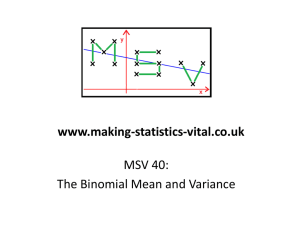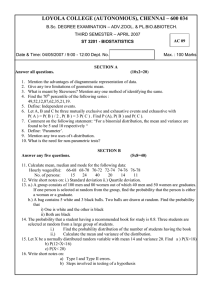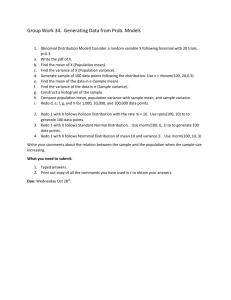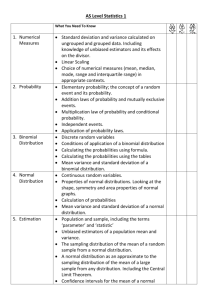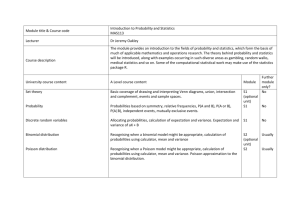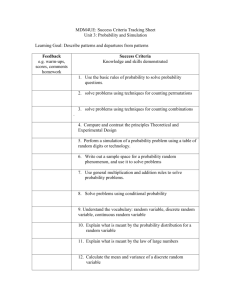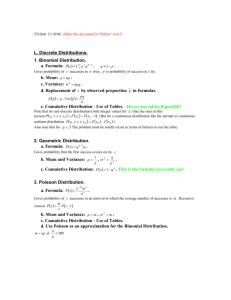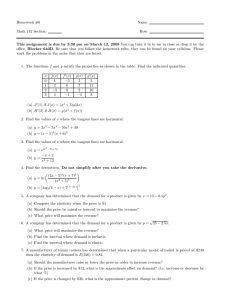What About Nonlinear Optimization? Read Ch. 10
advertisement
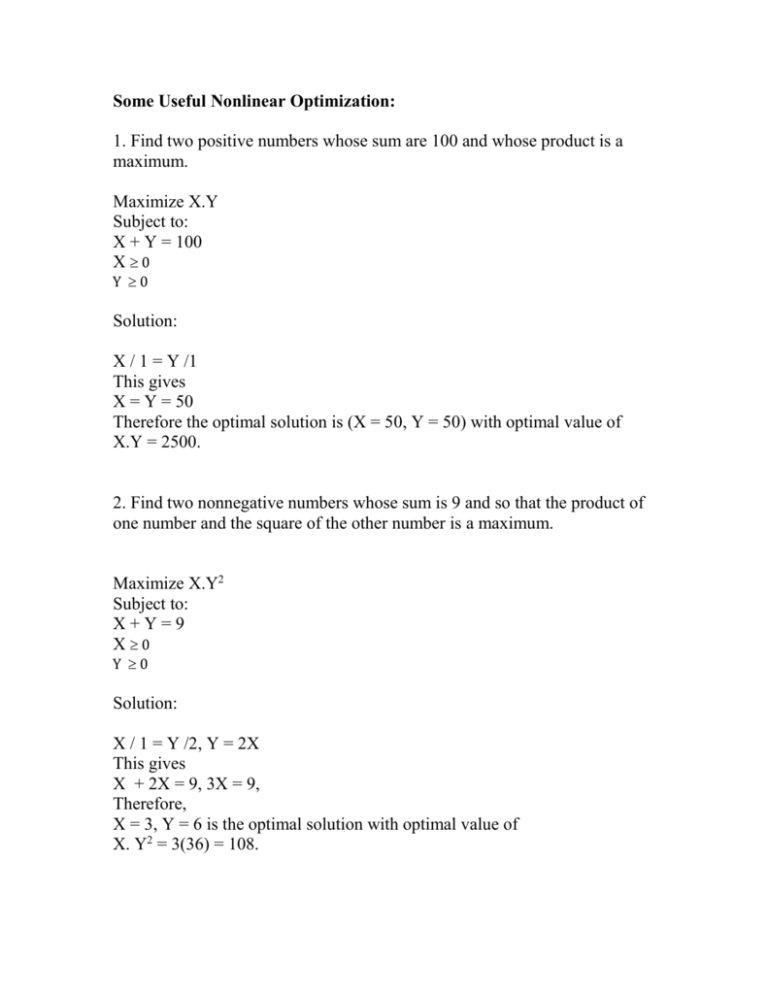
Some Useful Nonlinear Optimization: 1. Find two positive numbers whose sum are 100 and whose product is a maximum. Maximize X.Y Subject to: X + Y = 100 X0 Y 0 Solution: X / 1 = Y /1 This gives X = Y = 50 Therefore the optimal solution is (X = 50, Y = 50) with optimal value of X.Y = 2500. 2. Find two nonnegative numbers whose sum is 9 and so that the product of one number and the square of the other number is a maximum. Maximize X.Y2 Subject to: X+Y=9 X0 Y 0 Solution: X / 1 = Y /2, Y = 2X This gives X + 2X = 9, 3X = 9, Therefore, X = 3, Y = 6 is the optimal solution with optimal value of X. Y2 = 3(36) = 108. 3. Find two positive numbers such that their product is 25 and their sum is a minimum. What is the minimum sum? Minimize X + Y Subject to: X Y = 25 X0 Y 0 Solution: X / 1 = Y /1, This gives XY = X2 = 25, X = 5, the non-negative root. Therefore, X = 5, Y = 5 is the optimal solution with optimal value of X + Y = 5 + 5 = 10. 4. What about Maximize XY Subject to: 2X + 3Y = 60 X0 Y 0 Let A = 2X, B = 3Y X = A/2, Y = B/3 Substituting Maximize AB/6 Subject to: A + B = 60 A0 B 0 The maximum occurs at A = B = 30 Therefore X = 15, and Y = 10 with optimal value of XY = 150. A Statistical Application: What Binomial distribution has largest variance? Variance Where p + q =1 p 0 npq q0 Where n is number of trials. Solution: The variance is the worst for the Binomial with flat probability, i.e. p = q = 1 / 2, in that case the largest variance is 0.25n. Notice that the above results can be generalized for more than 2 decision variables. Moreover, unlike Linear Program, the optimal solution may not be one of the vertices.
